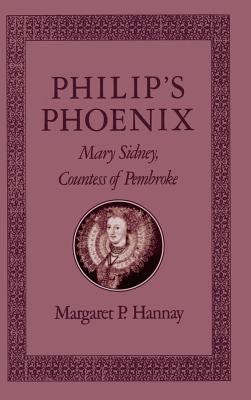In contrast to previous studies that have portrayed Mary Sidney as a demure, retiring woman, this biography shows that she was actually an outspoken and dynamic figure. Basing her work on primary sources including account books, legal documents, diaries, and family letters, Hannay shows that Sidney was a vibrant, eloquent, self-assertive woman who was deeply involved in Protestant politics. Although she did confine her writings to appropriately feminine genres, she called herself "Sister of Philip Sidney" to establish a literary and political identity. As a Phoenix rising from her brother’s ashes, she transcended gender restrictions by publishing her brother’s writings, by writing and translating works which he would have approved, by assuming his role as literary patron, and by supporting the cause for which he died. Hannay also reveals--via court cases--that in her final years the countess turned from literary to administrative responsibilities, contending with jewel thieves, pirates, and murderers.
| FindBook |
有 1 項符合
Philip’s Phoenix: Mary Sidney, Countess of Pembroke的圖書 |
 |
Philip’s Phoenix: Mary Sidney, Countess of Pembroke 作者:Hannay 出版社:Oxford University Press, USA 出版日期:1990-01-18 語言:英文 規格:精裝 / 346頁 / 24.4 x 16 x 3 cm / 普通級/ 初版 |
| 圖書館借閱 |
| 國家圖書館 | 全國圖書書目資訊網 | 國立公共資訊圖書館 | 電子書服務平台 | MetaCat 跨館整合查詢 |
| 臺北市立圖書館 | 新北市立圖書館 | 基隆市公共圖書館 | 桃園市立圖書館 | 新竹縣公共圖書館 |
| 苗栗縣立圖書館 | 臺中市立圖書館 | 彰化縣公共圖書館 | 南投縣文化局 | 雲林縣公共圖書館 |
| 嘉義縣圖書館 | 臺南市立圖書館 | 高雄市立圖書館 | 屏東縣公共圖書館 | 宜蘭縣公共圖書館 |
| 花蓮縣文化局 | 臺東縣文化處 |
|
|
圖書介紹 - 資料來源:博客來 評分:
圖書名稱:Philip’s Phoenix: Mary Sidney, Countess of Pembroke
|










